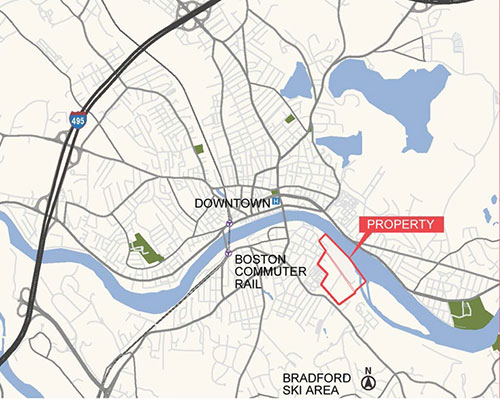One party in the ownership dispute for redevelopment of the former Haverhill Paperboard site is rebutting claims that company defaulted on an agreement to buy the land in 2013.
In September, 2013, Fort Point Development, LLC entered into an agreement to buy the Haverhill Paperboard site from Pentucket LLC and paid a $100,000 deposit. Fort Point attorney Jason A. Manekas told WHAV Monday he expects his client will prevail.
“The parties entered into a purchase and sale agreement for the entire waterfront parcel and the buyer is suing to enforce that contract. The buyer is confident that the court will require the seller to fulfill its contractual and regulatory obligations. The buyer intends to develop the site for residential use including donation of a waterfront park with public access.”
As part of the agreement, Fort Point was allowed to conduct additional environmental testing subject to certain restrictions, Pentucket said in a suit filed in Suffolk Superior Court. Pentucket President Brian Wilson said contract terms required loss of the deposit if the restrictions were violated. Further, the suit claims, Fort Point asked for more time last October to conduct tests and to renegotiate the purchase price. In response, Fort Point said Pentucket misrepresented property conditions, and effectively waived earlier testing restrictions.
The land ownership dispute was revealed to WHAV in a 33-page package sent by Pentucket, LLC, a unit of Barrow Development of Boston.
According to Wilson of Salem, Mass., there are plans to build a solar farm that would supply energy to city’s wastewater treatment plant, and save the city an estimated $7.6 to $8.3 million over 20 years. However, Wilson says, the city is violating state law by prohibiting solar energy projects in its waterfront zoning district overlay.

